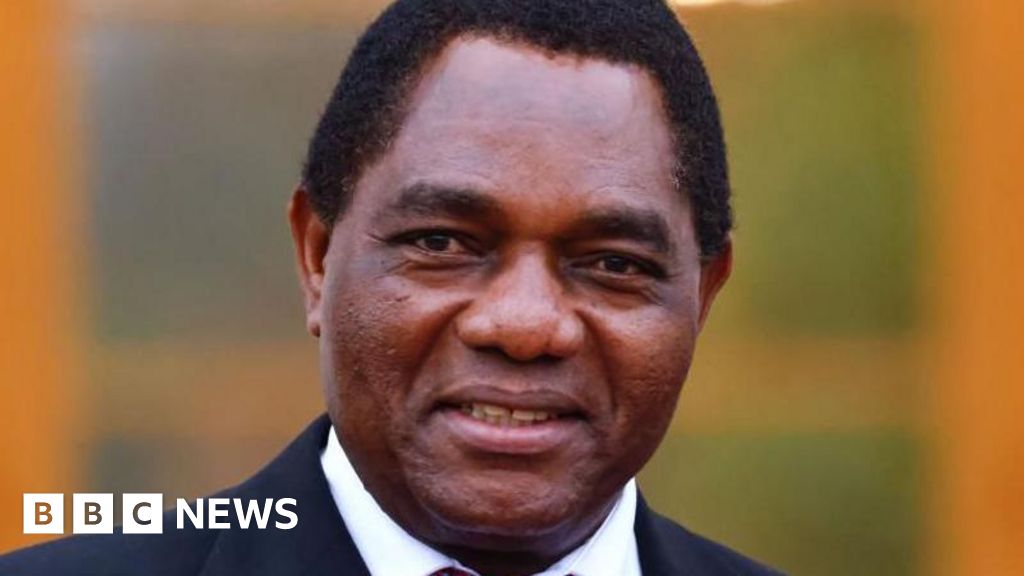
Hakainde Hichilema: Two men sentenced in Zambia for attempting to bewitch and kill president

Two Men Sentenced for Attempting to Bewitch and Kill Zambian President Hakainde Hichilema
In a landmark case that has captured the attention of Zambia, two men have been sentenced to two years in prison for their attempt to use witchcraft to kill President Hakainde Hichilema. The ruling marks a significant moment in Zambian legal history, as it is the first instance of individuals being prosecuted for such an offense against a sitting president.
The Convicts and Charges
The two men, Leonard Phiri, a Zambian national, and Jasten Mabulesse Candunde, a Mozambican, were found guilty under Zambia’s Witchcraft Act. Their arrest occurred in December when authorities discovered them in possession of various charms, including a live chameleon, which they allegedly intended to use in a ritual aimed at harming the president.
During the court proceedings, Magistrate Fine Mayambu emphasized the seriousness of the crime, stating, “It is my considered view that the convicts were not only the enemy of the head of state but were also enemies of all Zambians.” This sentiment reflects the broader implications of their actions beyond just an attack on the president.
Evidence and Court Ruling
The prosecution argued that Phiri and Candunde were hired by a fugitive former member of parliament to carry out the bewitching. Despite their defense, which claimed they were traditional healers acting within their cultural practices, the court found sufficient evidence to convict them. Notably, Phiri admitted ownership of the charms and even demonstrated how the chameleon’s tail, if pricked and used in a ritual, could allegedly lead to death within five days.
Magistrate Mayambu ruled against leniency, despite pleas from the defendants’ lawyer, Agrippa Malando, who requested a fine instead of imprisonment, citing their status as first-time offenders. The magistrate underscored the need for the law to deter such practices, stating, “The question is not whether the accused are wizards or actually possess supernatural powers. It is whether they represented themselves as such, and the evidence clearly shows they did.”
In addition to their two-year sentence for “professing” witchcraft, the men received a six-month sentence for possession of charms. However, since both sentences will run concurrently, they will serve a total of two years in prison, beginning from the date of their arrest in December 2024.
The Context of Witchcraft in Zambia
Witchcraft is a deeply entrenched belief in many African cultures, including Zambia, and the Witchcraft Act, enacted during colonial rule in 1914, aims to protect society from the fear and harm associated with witchcraft accusations. Lawyer Dickson Jere noted that while prosecutions for witchcraft are rare, the law serves to protect vulnerable individuals, particularly elderly women who may face mob justice after being accused of witchcraft.
The topic of witchcraft has also surfaced in discussions surrounding the late President Edgar Lungu’s funeral. There are allegations that the government’s insistence on burying him in Zambia, against the wishes of his family, may stem from “occult reasons.” The government has denied these claims. Following Lungu’s death in South Africa in June, his body has remained in a morgue due to ongoing disputes over his burial.
Hakainde Hichilema’s Stance
President Hakainde Hichilema has publicly stated that he does not believe in witchcraft. However, he has not commented specifically on the recent case involving Phiri and Candunde. The trial and its outcome have sparked conversations about the intersection of traditional beliefs and modern legal frameworks in Zambia.
This case serves as a reminder of the complexities surrounding cultural practices and the legal system, as well as the ongoing challenges faced by societies in reconciling traditional beliefs with contemporary governance.
Conclusion
The sentencing of Phiri and Candunde for attempting to bewitch President Hichilema highlights the unique legal challenges posed by witchcraft accusations in Zambia. It raises important questions about the role of traditional beliefs in the modern legal system and the implications for individuals accused of witchcraft. As Zambia navigates its cultural landscape, the government will need to balance respect for traditional practices with the need for legal protections against harm.
Key Facts
– **Convicts**: Leonard Phiri (Zambia) and Jasten Mabulesse Candunde (Mozambique).
– **Charges**: Convicted under the Witchcraft Act for attempting to bewitch and kill President Hakainde Hichilema.
– **Sentences**: Two years in prison for witchcraft; six months for possession of charms (served concurrently).
– **Context**: First trial of its kind against a sitting president in Zambia.
– **Legal Background**: Witchcraft Act enacted in 1914 during colonial rule; rarely enforced.
– **Public Reaction**: Case has sparked discussions on witchcraft and traditional beliefs in Zambia.
Source: www.bbc.com
